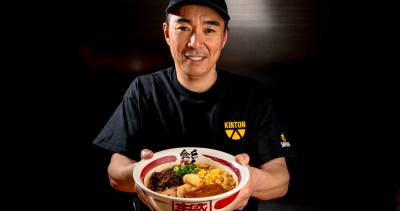Gay Games still necessary
Greg Larocque believes the gay/lesbian/bisexual/transgender community will eventually advance far enough in mainstream consciousness to make redundant special games aimed at their communities.
"I would think so, but it won't be in my lifetime," Larocque, 61, told the Georgia Straight by phone.
Larocque cofounded the North American chapter of the Gay and Lesbian International Sport Association, of which he is now president, in 2005. He was recently on the Calgary OutGames Legacy Committee, which culminated in the 2007 Calgary OutGames in Cowtown over the Easter weekend, where, he said, Calgarians were "welcoming".
Larocque was asked when the GLBT community can expect to participate in regular Olympic Games openly and get the same welcome. "I think that will happen when people stand up and say to their colleagues, 'Oh, I'm gay and I'm getting married next year and I'd like you to come,'" he said, before quickly adding: "The Canadian Charter [of Rights and Freedoms] is only one generation old, and when you think we're having an event that attracts more than 3,000 people, and a huge chunk of those are straight people from Calgary, you say to yourself, 'Holy cow.'"
Former Canadian swimmer Mark Tewksbury, a gold medallist in the 1992 Barcelona Olympic Games who announced afterward he was gay, will be in Vancouver during Pride week. He told the Straight the question of whether or not the GLBT community needs its own games is a "fair" one.
"In a perfect world you wouldn't need it, but the reality is that a lot of gays and lesbians get turned off sport quite early," he said by phone from Montreal. "It's very hetero-dominated. The first thing you get called if you miss a ball or whatever is, 'Oh, you pussy,' or 'You fag.' That is the reality, so a lot of people say, 'I don't need this. Life is hard enough.'"
The Web pages of the nonprofit 2010 Legacies Now society devote space to ways to include community groups, aboriginal peoples, inner-city residents, people with disabilities, children and youth, and "everyone". Though the GLBT community is not mentioned as one of these special groups, 2010 Legacies Now communications director Karen McDonald told the Straight that this was "not an effort to exclude anybody".
"In an ideal world, we would try to target every single group out there," McDonald said. "But we had to focus our energies on the few specific target groups."
For Tewksbury, it is a case of "keeping these [GLBT] issues on the radar".
"It's one thing to bring people together to play sport, but in our case, many of those people are there because they felt discriminated against in the traditional sports system," he said. "They didn't feel safe to play sport. So there is a double agenda: one is to bring people together, but the other is to 'bridge' so that eventually you don't need a gay league and all sport is practised in a place where you feel safe and open and welcome. But it's a long way to go until that happens."
Vancouver-based GLISA-NA cofounder Terry Hutcheson told the Straight the worldwide perception of gays and lesbians must also be taken into consideration around the Olympic Games in general.
"It is hard when so many of the Olympic committee are from Africa, from the Middle East, and from some Asian countries, and those areas of the world aren't as open as perhaps North America and Europe are," he said. "So that is a challenge. They [VANOC] need to be sensitive to cultural differences as well, but I am not one to say we need to charge out there 100 percent and force people to be accepting. But leading by example and being involved and not hiding means people will slowly come to terms with it."















Comments